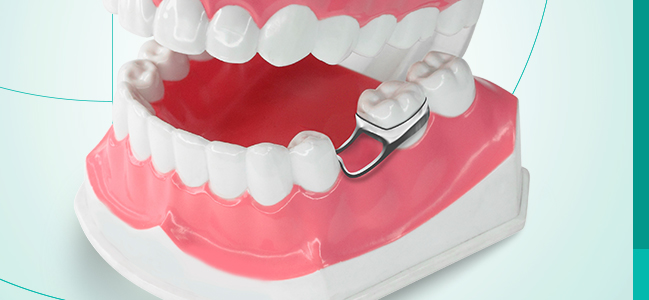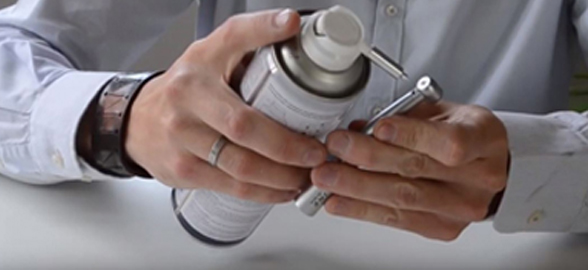Down syndrome is a genetic disorder caused by the presence of an extra copy of chromosome 21. It is also called Trisomy 21, because instead of there being 2 chromosomes, there are 3. Firstly, we must understand that the syndrome has different degrees of severity, which will have both physical and mental impacts on the patient.
Symptoms: Physical and Mental
Among the physical characteristics, the affected people usually:
- Have a smaller head than usual
- Small ears and mouth
- Flat nose
- Eyes tilted up
- Short hands and fingers
- low muscle tone
These changes make them more likely to suffer from conditions such as congenital heart malformation, dementia, cataract, gastrointestinal obstruction, hearing problems, sleep apnea, hypothyroidism and constipation problems. In relation to mental symptoms, the most common are usually:
- Low level of attention
- Diminished ability to discern
- An impulsive behavior
- Low learning capacity
- They may suffer depression, anger or frustration when they are aware of their limitations
Each case is unique and each person may have different physical and mental symptoms. With the help of speech therapy, physiotherapy, occupational therapy and mental health care, it is possible that some may achieve independence. However, people with downsyndrome should frequently go to the doctor to check up and monitor their condition.
Your needs in the dental cabinet: How should I care for a patient with Down Syndrome?

Above all, it is important to make parents aware that they should take their child who has been diagnosed with downsyndrome to the dental office from an early age so that a relationship can be formed with the relvent dental professionals, this will help with cooperation during appointments. It is also recommended that a child with downsyndrom visits the same dental practice and recieves treatment by the same professionals. The reason for this is because repetition is key for the child to create confidence and co-operate witht the practitioner which ultimately makes the consultation more successful.
It is important that before the consultation you obtain and study the patient's medical history. Ask their doctor, their family or their caregivers so that they know exactly the details about your patient's state of health. It is also important to find out about their understanding and communication skills, as mental capabilities in patients vary greatly. Regarding communication, the parents or caregiver should guide the dental professionals, because they will understand the childs wayof communicating and giving signs best.
Once you have a clear idea on your patient's level of understanding, <strong>you should build a trusting relationship with them. Converse directly, listen attentively, show them that you are understand what he means. To explain the procedure you are going to perform,use simple and concrete instructions, repeat them frequently</strong> to compensate for any short-term memory loss that might be apperent for your patient.
Unlike other children's patients, in this case it may be better not to have an office full of games, teddy bears or colored and eye-catching objects that may distract their attention and hinder cooperation, but it is all a matter of finding out in advance by communicating with the person responsible for the child and finding out more about their temperament.
- Start with a simple step: put him in the dental chair. Always remember to explain to him what you are doing and make sure he understands. If you have difficulty getting your cooperation, find out what motivates you. It can be a simple pair of gloves, a mask or a toy.
- After getting you relaxed and at ease in the chair, you can start an oral exam. Start him to use only his fingers, always explain in a simple and concrete way what he is doing.
- Enter the steps you can also take several pauses. Some patients with Down's syndrome enjoy a lot of music, which can make them calmer and more comfortable.
- When you start using dental instruments, explain how each one works and demonstrate in a mouth model. You can even let the patient use them in the mouth model as well.
- If the previous step occurs well, you can start prophylaxis, followed by dental X-rays or the necessary procedure.
Some other techniques to calm the patient are:
- Let the patient sit on the lap of the parents or guardian
- Please ask them to take your favorite toy to the consultation
- Show a cartoon during treatment
- "Knee-to-Knee" exam

Imobilization in patients with Down Syndrome: only in the last case
Use immobilization techniques only when strictly necessary to protect the patient and the medical team, never as a convenience. Immobilization should not cause discomfort or injury.
If you want to know about these techniques, we advise you to investigate in associations such as the Portuguese Dental Association.
Typical conditions in patients with Down syndrome
Periodontal Disease:
People with Down's syndrome suffer a high incidence of this disease. Children experience a rapid and destructive periodontitis. Consequently, they lose a high number of permanent anterior teeth in early adolescence. Other factors that may contribute are: poor oral hygiene, malocclusion, bruxism, conic roots, and abnormal host response because of the compromised immune system.
- These patients may benefit from the daily use of antimicrobial agents such as chlorhexidine. You should recommend a method of application to take into account the particularities of your patient. The rinse, for example, will not work for those with difficulty swallowing or expecting. Chlorhexidine can also be applied with a spray or toothbrush, without losing its effectiveness.
-
Encourage independence at the time of oral hygiene. Ask the patient to show you how to brush your teeth. Advisor adaptations for the toothbrush and floss. The electric tooth brushes or the brushes with children's themes and hourglasses are great options for patients to maintain a good hygiene routine.
In Dentaltix you find all kinds of instruments for Periodontics
Orofacial Characteristics
Because they have less muscle tone, this also affects the head and the oral cavity. The lack of strength in the lips and cheeks contributes to the imbalance of strength in the teeth with the strength of the tongue being the most influential, which contributes to the open bite often seen in people with Down's syndrome. Lack of muscle tone also results in less efficient natural chewing and cleansing. Thus, more food tends to accumulate in the teeth after meals.
They have the middle region of the face quite small which makes them breathe through the mouth, causing a dry mouth and cleft lips and in the tongue, which can develop cracks with time, which leads to halitosis.
Dental Anomalies
Missing teeth occur more frequently in people with Down syndrome. Third molars, lateral and second bicuspid mandibulars are the most common.
A late rash followed if abnormal sequence also occurs with some children. Milk teeth may not appear until 2 years of age and dentition may not be complete until 4 or 5 years. Some milk teeth do not fall out until they are 14 or 15 years old.
Microdontics and malformation also occur. Smaller crowns, small conical roots, can lead from tooth loss to periodontal disease. The ideal is to examine the child regularly from his first birthday to identify abnormal formations and eruptions. Consider using a panaromic ex-ray because patients often find this technique less threatening than individual films. Try to keep the milk teeth as long as possible and consider placing space maintainers where the teeth are missing.

So, do you already feel more prepared to care for a patient with special needs? Share your experiences with us by hashtag #Dentaltixkicks on instagram or facebook.



